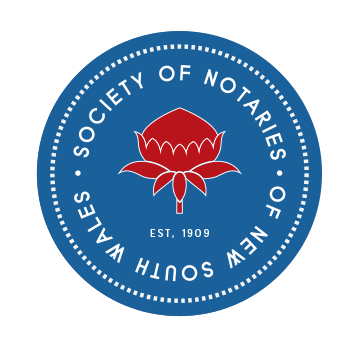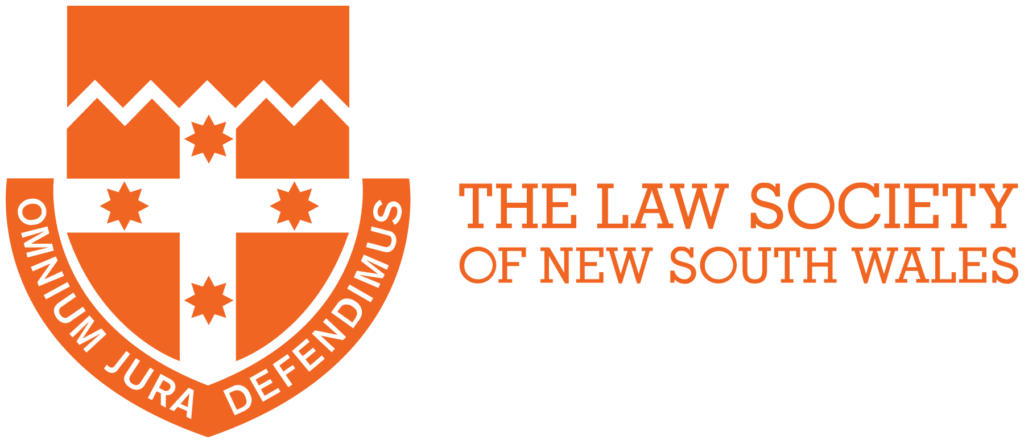Trademark Lawyer
We register trademarks before competitors file similar marks, enforce protection when boundaries are crossed, and secure brand ownership before you’re forced to rebrand or negotiate from weakness.


Secure Your Legal Advantage
500+
Your brand deserves to be yours, no question. Join 500+ others who’ve secured trade marks built to grow, scale, and stand out globally.
$10M +
With over $10 million recovered, our clients move forward with renewed clarity, free from delays, distractions, and the weight of unresolved matters.
2,000 +
We’ve helped over 2,000 companies scale, advising on the deals, hires, and legal frameworks behind expansion, funding, and ownership.
40 Years
With 40 years of experience, we’ve all seen the challenges you’re facing. We’ll help you avoid the mistakes others have made.














The Oversight That Costs Businesses Their Brand
You’ve been trading for 18 months. Built a customer base. Invested in marketing. Then a competitor launches using a nearly identical name, logo design stolen from your website, and similar product packaging. Your ASIC business name registration means nothing legally. They haven’t broken any law because you never registered federal trademark protection. Standard cease and desist letters fail because they own their business name registration too.
Without a registered trademark, your brand is open season.
A commercial trademark lawyer secures federal protection before launch, not after copying starts. At Lazarus Legal, we search conflicts across IP Australia registers, pending applications, business directories, and common law usage that standard searches miss. Registration creates statutory rights allowing cease and desist enforcement through Federal Court proceedings when competitors deliberately copy protected branding. This operational approach prevents the defensive scrambles that consume capital and destroy momentum when founders discover their brand isn’t legally theirs.
Lawyers Who've Built Brands Worth Protecting
Mark Lazarus spent years as Legal Director at Monster Energy, where trademark enforcement formed the foundation of global brand protection strategy.
Our team handles trademark work for businesses operating across retail, hospitality, manufacturing, and digital services. Every registration gets structured for commercial use and not just technical compliance.
How We Secure Marks That Actually Hold Up
We file applications with class descriptions protecting real business operations without triggering unnecessary examiner conflicts. When IP Australia issues objections, we respond with technical legal arguments referencing case precedents and statutory interpretation.
Clients receive marks that survive examination and create enforceable protection against copycat filings. This prevents rebrands that waste 12 months of positioning work, ensures your mark holds up during investor due diligence, and establishes legal grounds for enforcement.
When Do You Need a Trademark Lawyer
Most trademark problems emerge during predictable business transitions. Here’s when companies typically engage trademark lawyers and what happens when they wait too long.
Competitor copies your brand
A competitor launches using nearly identical branding: similar name, matching colour scheme, comparable logo design. Your cease and desist letters fail because neither mark is registered and ASIC business names create no exclusive rights. You need to determine whether you can pursue expensive passing off claims or whether the lack of federal registration means accepting the confusion.
Product launch hits trademark conflict
You launch a new product line after a basic search shows no conflicts. Three months later, a cease and desist arrives from a registered trademark holder whose mark never appeared in your ASIC search. You need to assess whether you can negotiate co-existence, whether you must rebrand completely, or whether Federal Court proceedings are inevitable.
International expansion creates protection gaps
You're expanding into New Zealand and Singapore, but Australian registration creates zero foreign protection. DIY filings in multiple jurisdictions fail examination for local conflicts your team couldn't assess. You need to determine whether Madrid Protocol applications can salvage protection or whether you've already lost key markets to conflicting registrations.
Franchise deal requires trademark proof
Your franchise lawyer requests proof of registered trademarks for disclosure documentation. You discover your business name isn't federally protected and three similar marks exist in your category. You need to determine whether attempting registration now risks opposition that delays franchise launches or whether you proceed without proper trademark licensing rights.
What Standard IP Advisors Miss
Generic IP firms file applications exactly as clients describe them. Experienced trademark lawyers ask what you’re actually protecting and structure filings accordingly. A fitness app needs trademark protection for software, but also for apparel and retail goods if you’re selling branded merchandise. A consulting business needs protection for training services, but also for publications and digital content if you’re publishing materials.
Our clients work with lawyers who understand commercial context before filing, not just form completion. This commercial approach has prevented classification errors that require costly amendments, identified conflicts before filing fees are wasted, and structured marks that support licensing and franchise models from day one. We explain what registered protection actually enables and what it cannot prevent before you commit filing fees.
Protect your brand before someone else takes it.
Every agreement is drafted in-house. Shareholder agreements, SAFE notes, ESOPs, IP deeds, and service terms are all tailored to the actual deal.

I’ve worked with Lazarus Legal on several matters and have always been impressed with the level of service provided. They are professional and knowledgeable, and take the time to explain things clearly, which makes the whole process much less stressful. They have helped us with some important contracts as well as different trademarks, and every interaction has been professional and positive.
Best of the best. Professional, prompt and always offering excellent advice. I’ve used Mark and his team for multiple businesses from a tech start up to more established businesses. Mark has advised on employee contracts, shareholders agreements, trademarks and more. I wouldn’t use any other legal service provider.
What truly sets Mark apart is his dedication, whether it’s late at night or first thing in the morning, he is responsive, thoughtful, and ready to help. It’s clear that he puts his heart and soul into his work, and that level of care and commitment is rare to find. If you’re a startup looking for legal counsel, Mark is the lawyer you want by your side. He’s resourceful, dependable, and above all, he truly has your back.
- Ready when you are
You built the brand. Don’t let someone else legally steal it.
Book a consult with our trademark lawyer team and get clear advice on your rights, realistic outcomes, and recommended next steps. No jargon, no pressure; just practical guidance on whether to fight, settle, or walk away. Contact Lazarus Legal today to discuss your dispute.
What Businesses Ask Before Engaging A Trademark Lawyer
What happens if IP Australia rejects my trademark application?
IP Australia issues adverse examination reports when applications conflict with existing marks, appear too descriptive for the goods claimed, or raise public interest concerns under sections 41, 42, 43, or 60 of the Trade Marks Act 1995. These reports require legal responses within two months citing case law precedents, statutory interpretation, or evidence of acquired distinctiveness.
Non-lawyers typically cannot navigate these technical requirements effectively. Failed responses result in final refusals and lost filing fees. Our analysis shows approximately 60% of DIY applications receive adverse reports, with fewer than 30% successfully overturning initial refusals without legal representation. Professional responses typically include legal arguments addressing the specific objection grounds, evidence submissions proving market recognition where descriptiveness is claimed, or strategic amendments narrowing the goods and services scope to avoid conflicts. The response quality determines whether applications proceed to registration or result in abandoned applications and wasted filing fees.
Can competitors legally copy my brand if I don't have a registered trademark?
Unregistered brands rely on common law passing off claims requiring proof of reputation, consumer confusion, and damages, claims that cost $50,000-$150,000 in legal fees with uncertain outcomes because passing off requires establishing that consumers actually associate your brand with your business and the competitor’s use creates confusion. Registered trademarks create immediate statutory grounds for infringement proceedings without proving reputation or confusion.
Federal Court proceedings for registered mark infringement typically result in injunctions preventing further use, damages for lost revenue, and legal cost orders against infringers. Competitors can challenge registered marks through cancellation applications, but the evidentiary burden shifts to them to prove your mark should not have been registered. Without registration, you bear the entire burden of proving reputation and confusion. Registration fundamentally changes the legal position from difficult-to-prove common law claims to straightforward statutory infringement proceedings. The enforcement difference is why businesses operating in competitive markets or with significant brand investment should register marks before competitors file similar applications or begin infringing use.
How long does federal trademark registration actually take in Australia?
Seven to twelve months from filing to registration for applications without objections or oppositions. IP Australia conducts formalities examination within 1-2 months verifying correct applicant details and fee payment, followed by substantive examination assessing registrability against similarity conflicts, descriptiveness, and public interest grounds.
When examiners identify issues, they issue adverse reports requiring responses within two months. Failure to respond results in automatic abandonment. After clearing examination, marks publish in the Australian Official Journal of Trade Marks for a two-month opposition period where third parties can object.
Opposition proceedings extend timelines substantially, typically adding 12-18 months when contested through hearings. Expedited examination is available for applicants demonstrating infringement concerns or imminent launches, reducing timelines to 3-4 months for urgent matters requiring immediate protection. Once registered, trademarks remain valid for 10 years with unlimited renewal periods on payment of renewal fees.
The timeline variability depends primarily on whether applications receive adverse reports and whether third parties file oppositions during the publication period. Planning for 12-month timelines allows appropriate buffer for standard examination processes.
Should I file an international trademark application or just register in Australia?
Australian trademark registration provides zero protection in foreign jurisdictions. Each country requires separate filings under territorial trademark systems. Madrid Protocol applications allow Australian trademark owners to extend protection into 130+ member countries through a single centralized filing, reducing costs and administrative complexity compared to filing separate national applications in each jurisdiction.
However, Madrid applications depend on the base Australian application remaining valid. If your Australian mark is cancelled, all international extensions fall. Direct national filings in key markets like USA, UK, and EU provide independent protection not dependent on Australian registration status. The choice depends on your export markets, expansion timeline, and whether you’re selling physical products requiring customs enforcement or digital services where jurisdictional infringement is harder to control.
Businesses actively trading internationally should file trademarks in operating jurisdictions before launch rather than waiting until after infringement occurs, because trademark rights typically vest with first-to-file applicants rather than first-to-use businesses in most jurisdictions outside common law countries.
Do employment agreements need IP assignment clauses to protect my trademark?
Employment and contractor agreements should include IP assignment clauses transferring ownership of any trademark designs, branding concepts, or creative work developed during employment to your company. Without explicit assignment clauses, employees and contractors may retain ownership rights to logos, brand names, or creative materials they develop, creating disputes when they leave or claim ownership of work you believed belonged to the business.
This becomes particularly problematic when trademark applications require proof of ownership and your designer or marketing contractor claims they own the original artwork or brand concepts your mark is based on. Standard employment contracts frequently omit comprehensive IP assignment provisions, creating gaps that emerge during trademark prosecution when IP Australia requests ownership evidence or during business sales when buyers conduct IP due diligence.
Our Agreements Lawyer team drafts employment contracts, contractor agreements, and confidentiality terms that clearly assign all IP rights to your business, preventing ownership disputes that delay trademark registrations or create title defects affecting business valuation.
